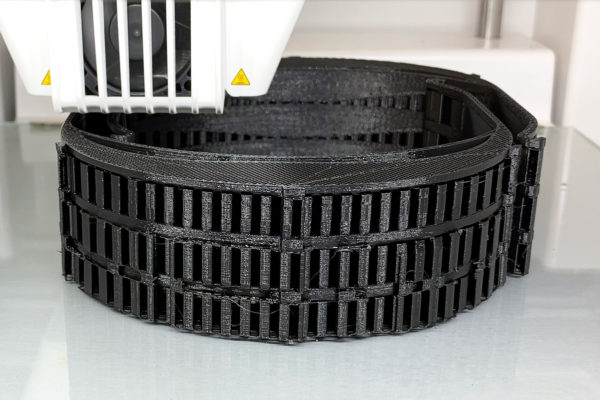AUSTIN, Texas — In response to the growing demand for personal protective equipment (PPE) in health institutions, the Pharmaceutical Engineering and 3D Printing (PharmE3D) Lab at The University of Texas at Austin is using its 3D-printing resources to fabricate face shields for Dell Medical School and other health institutions. The project, called RAPID Shield, leverages the lab’s quick turnaround to meet demand until stocks can be replenished.
After seeing the overwhelming response from the UT community to Dell Medical School’s recent PPE collection drive, the PharmE3D Lab, led by Mohammed Maniruzzaman, thought of a way to help. Maniruzzaman, an assistant professor in the College of Pharmacy, contacted Dell Medical School, UT Health Austin, the School of Nursing and other UT health institutions to make requests for 3D-printed face shields.
“When researchers around the world are now focused on development of an effective treatment for COVID-19, our current efforts can make a small yet significant impact,” Maniruzzaman said. “We are so privileged that our research could support frontline health professionals within our UT community and beyond during this pandemic. I am grateful to my research team who work tirelessly to make RAPID Shield a reality.”
As the RAPID Shield project expands its scope in the fight against COVID-19, other UT colleges and schools are also using 3D-printing resources to meet demand. The Cockrell School of Engineering’s Texas Inventionworks innovation hub has its own plans to 3D-print a face mask prototype with a reusable plastic shell, a replaceable filter, straps and a flexible foam or rubber seal.
While the PharmE3D Lab works to meet immediate demands on campus, it continues to explore other ways to use its expertise and facilities during the COVID-19 crisis. Recently, the Food and Drug Administration fast-tracked approval of a ventilator separator device, which motivated the lab to produce an advanced model through customized 3D printing.
The lab plans to go one step further and include a robust filter at each of the separate attachments going to different patients. This design could allow three to four patients to use the same ventilator safely, assisting hospitals in dire need of additional ventilator supplies.
“We knew that Dr. Maniruzzaman was dynamic when he joined our faculty last May,” said M. Lynn Crismon, dean of the College of Pharmacy. “He has demonstrated his creativity for 3D printing to assist the campus community. The College of Pharmacy is proud that we can support him in these important efforts.”
In addition to RAPID Shield, the PharmE3D Lab is undertaking three other important research projects to combat COVID-19. Two of its projects were invited for grant bids from the U.S. Department of Health and Human Services and Saudi Arabia’s Ministry of Health. If approved, the team can use its innovative patient-focused drug delivery and smart-particles technology in the challenge to treat and contain COVID-19.
One of the lab’s 3D-printing platform technologies was a recent winner in the Research4Impact competition, hosted by Texas Health Catalyst at Dell Medical School. The 3D-printing platform can potentially be used for personalized delivery of antiviral therapy to fight COVID-19.




